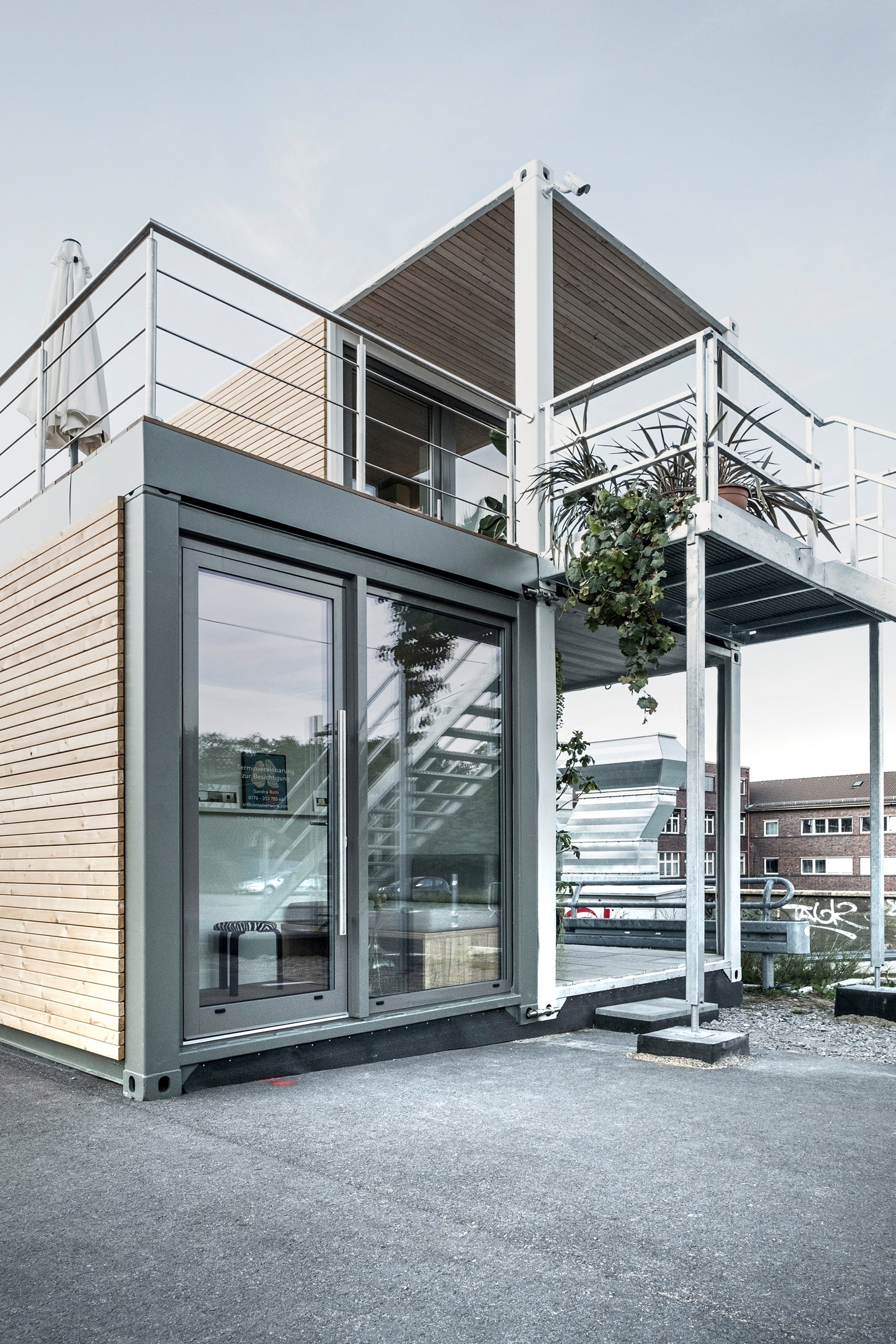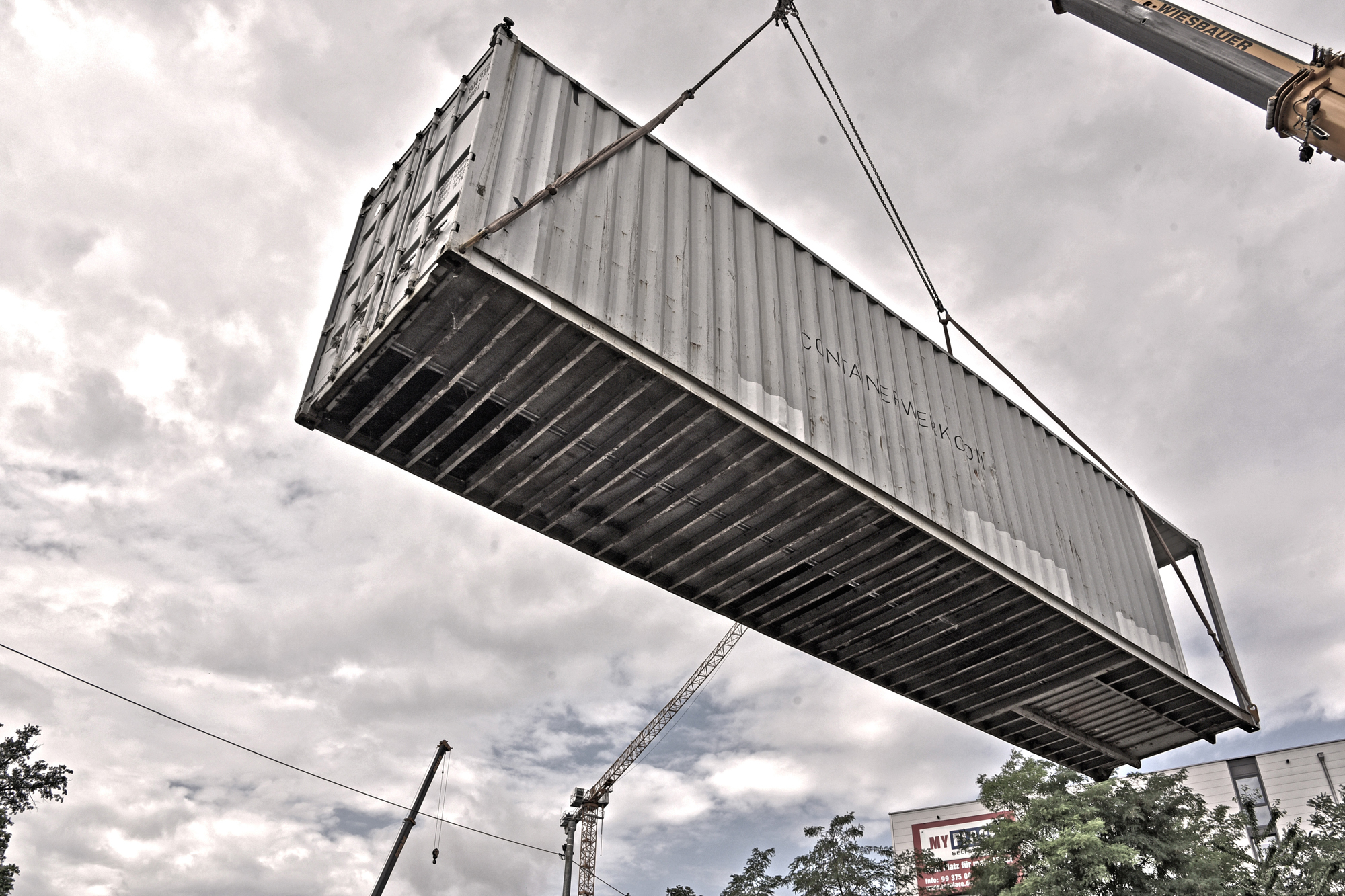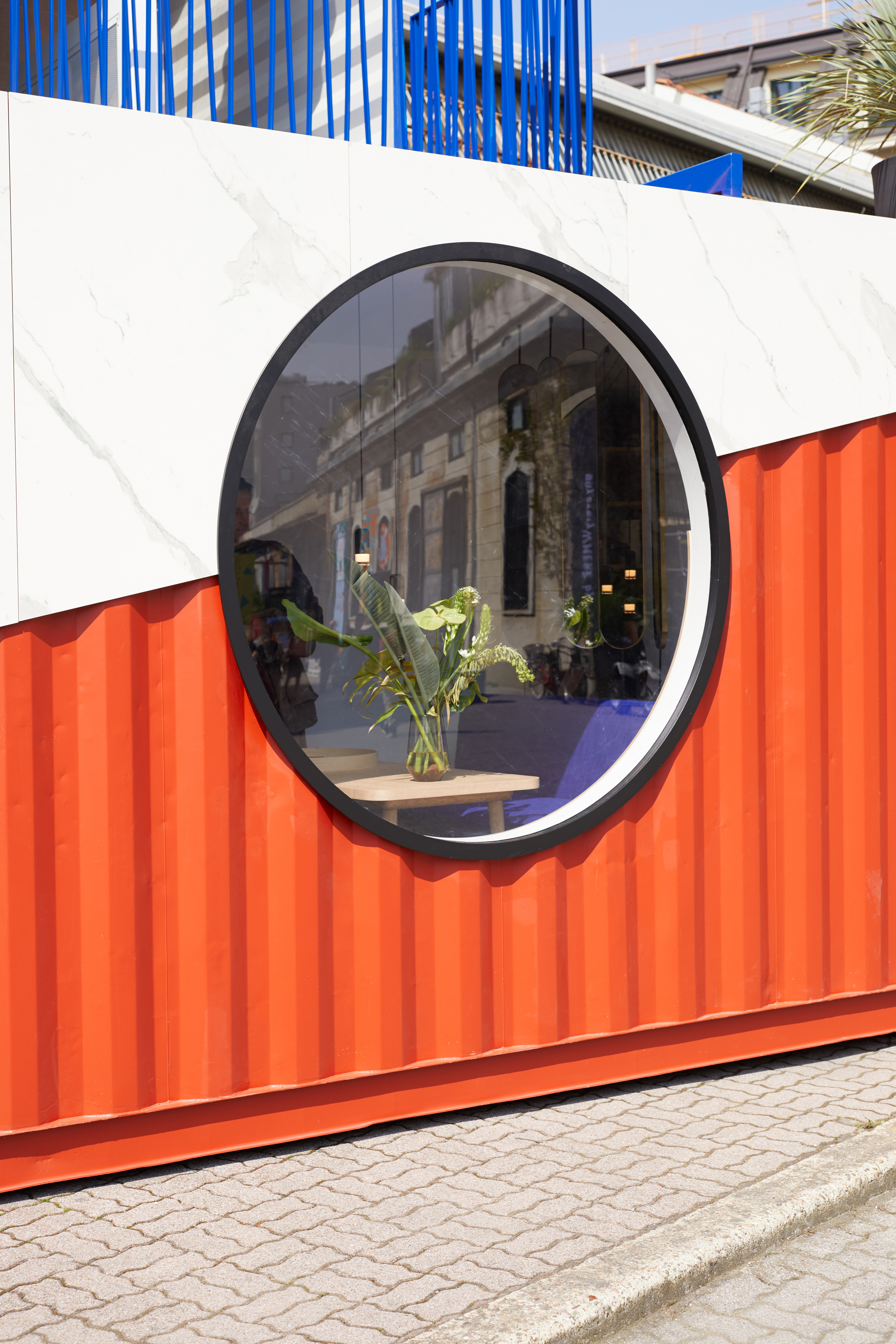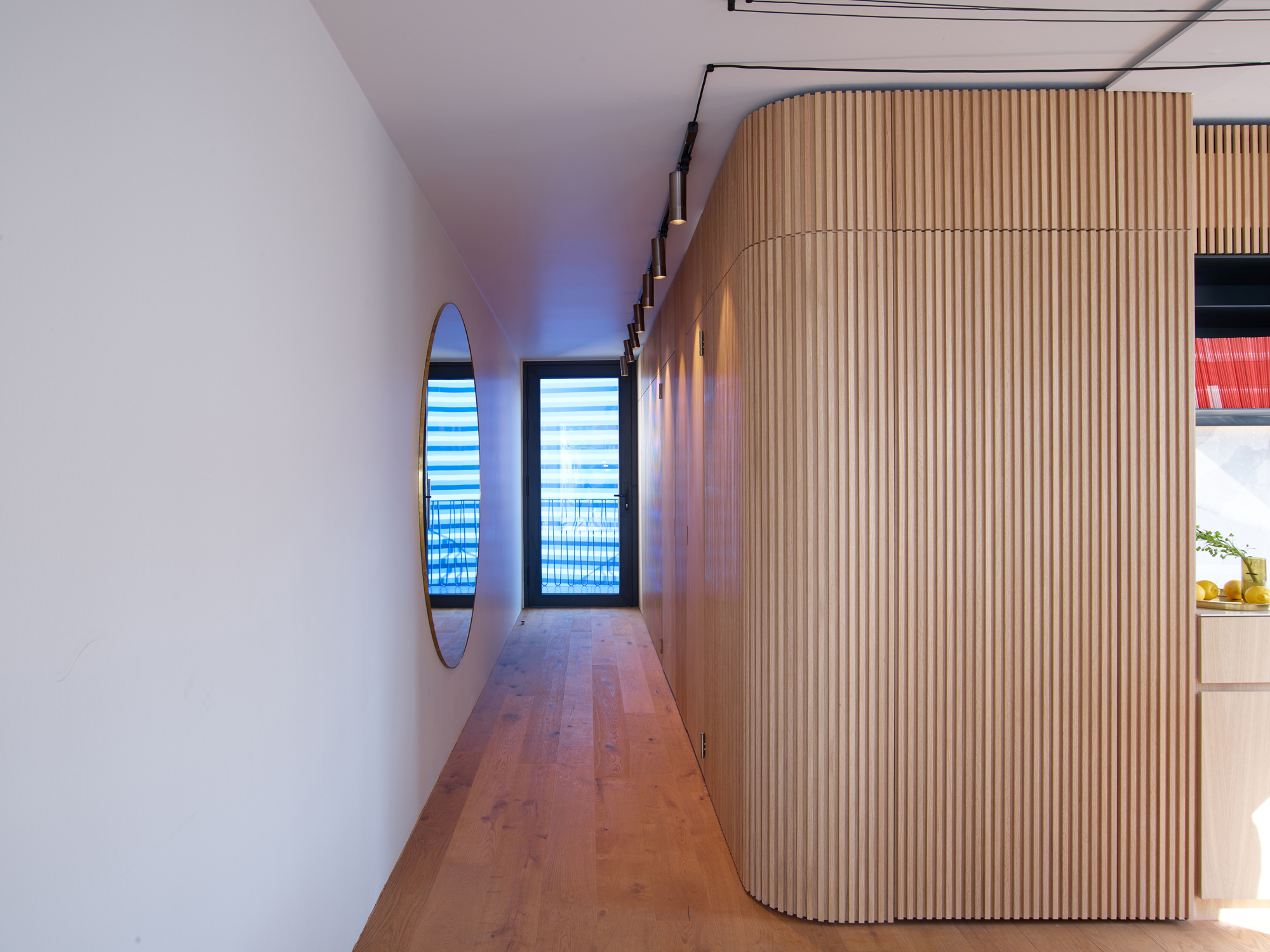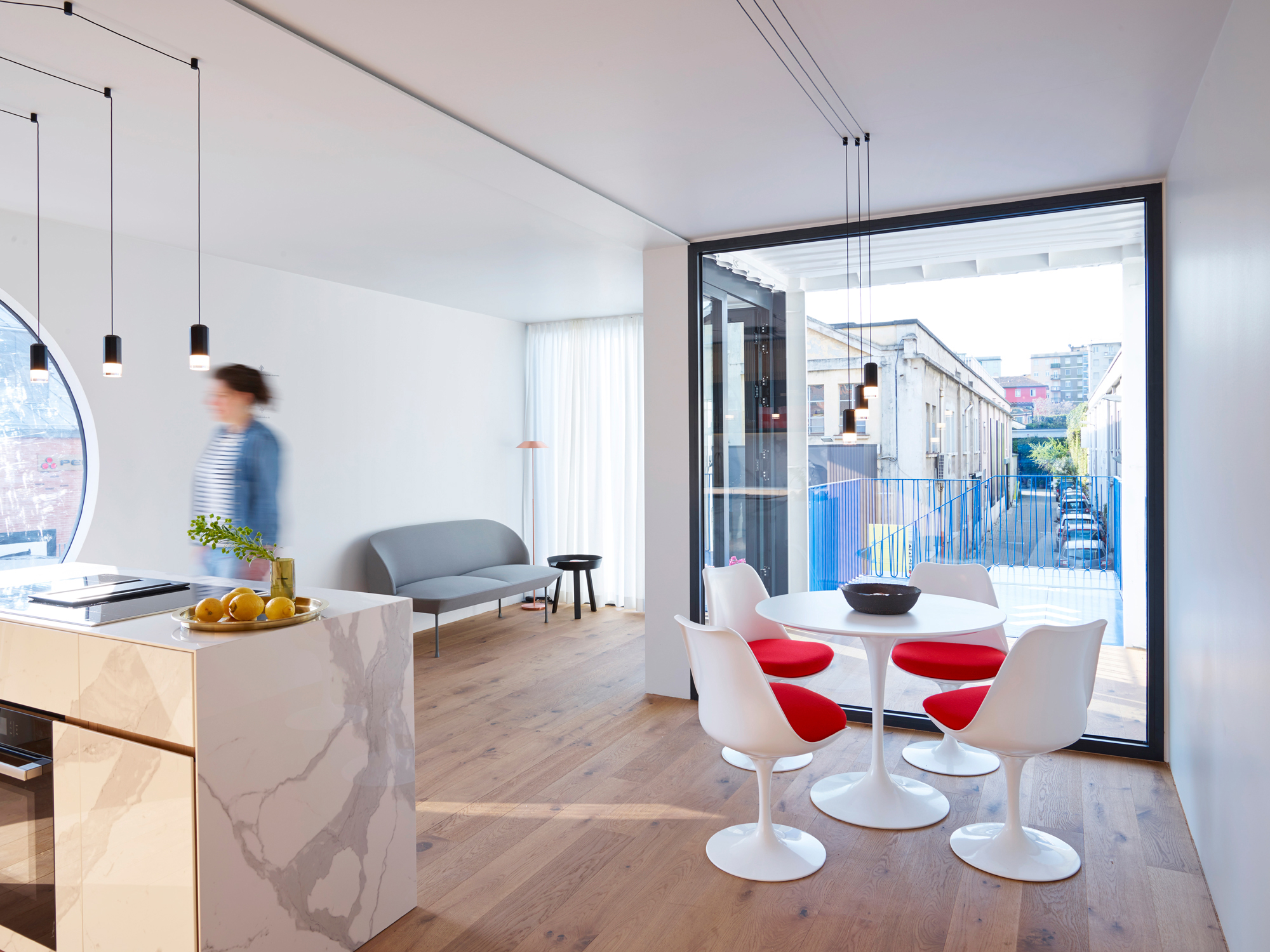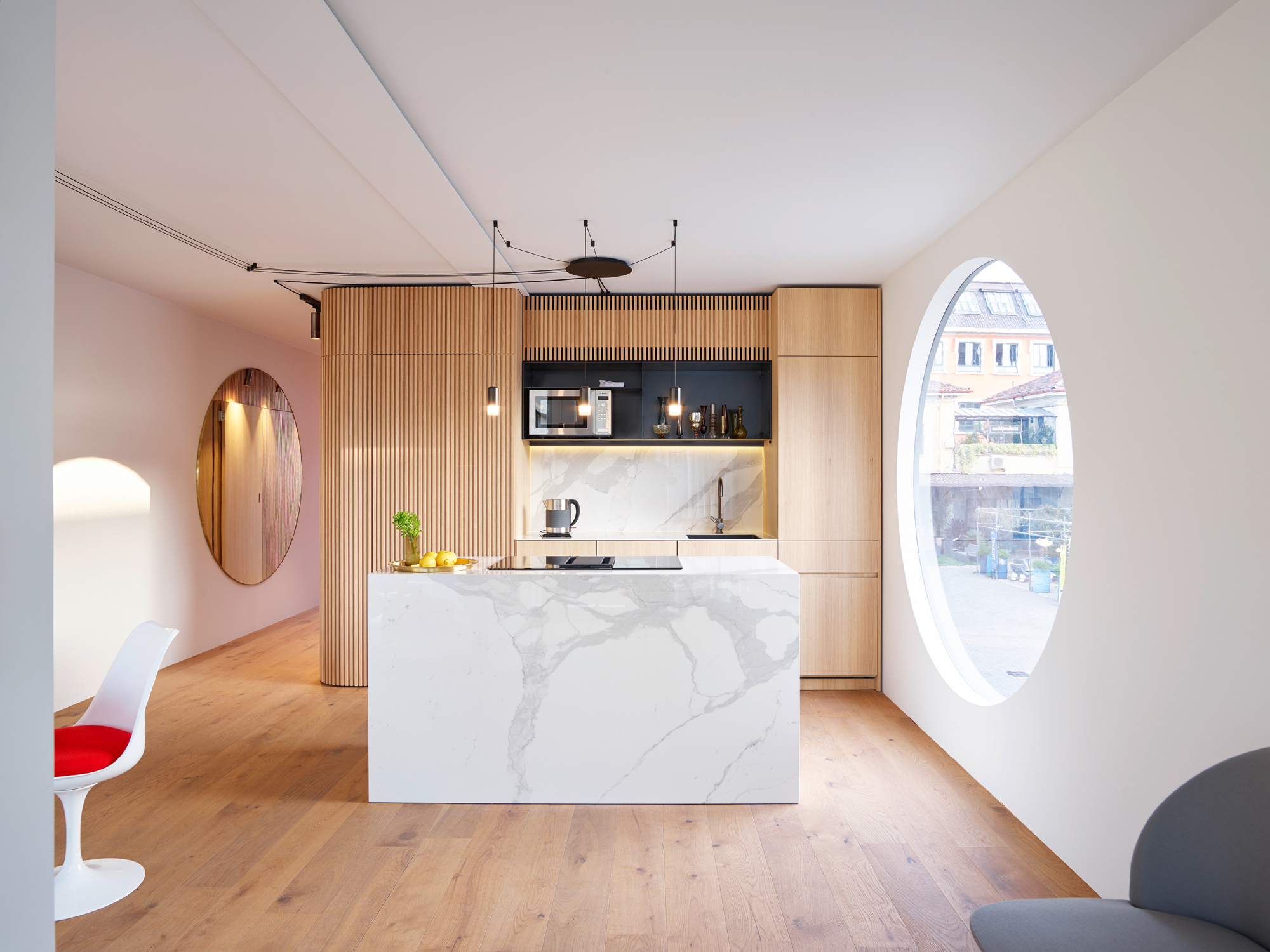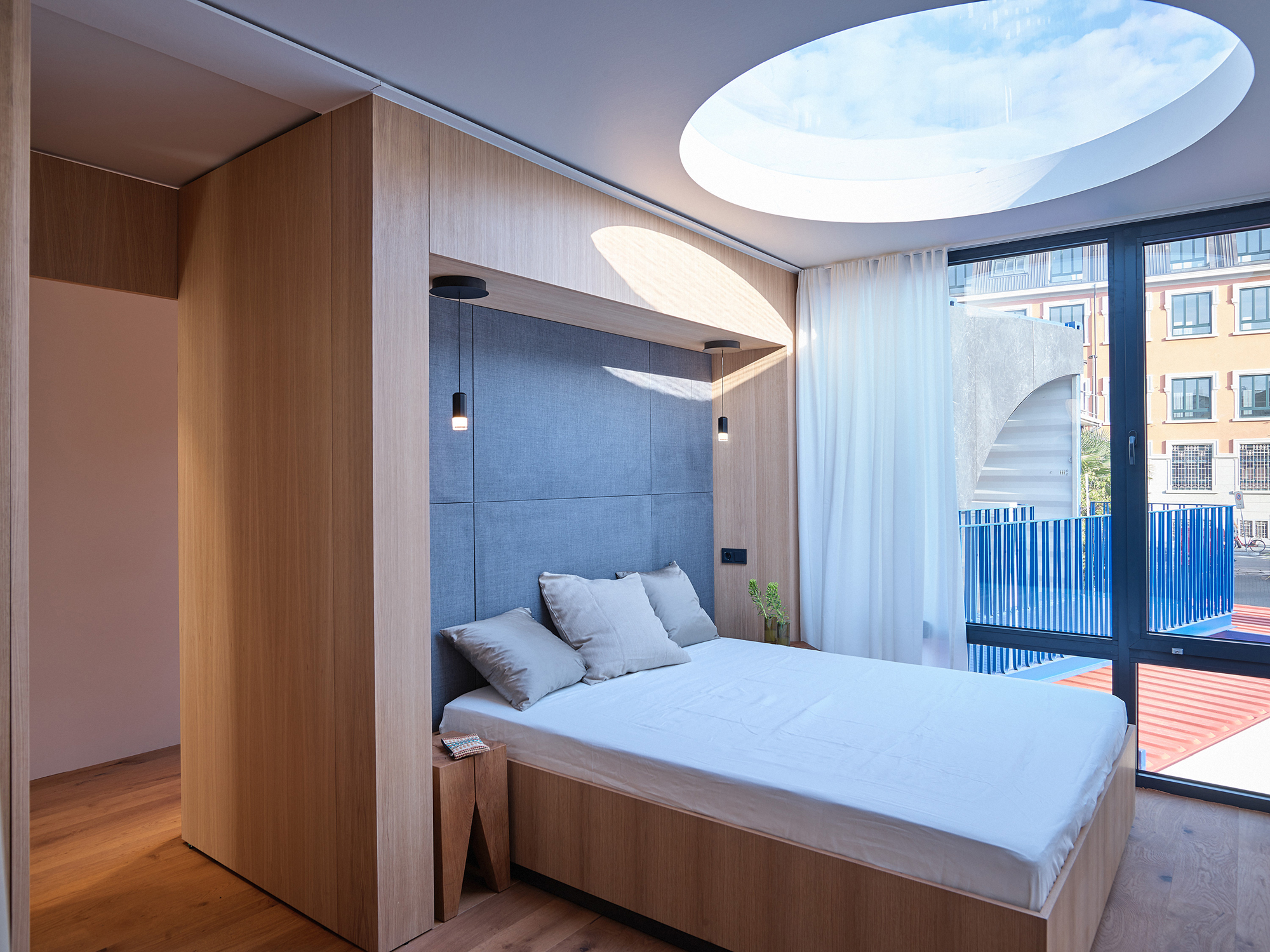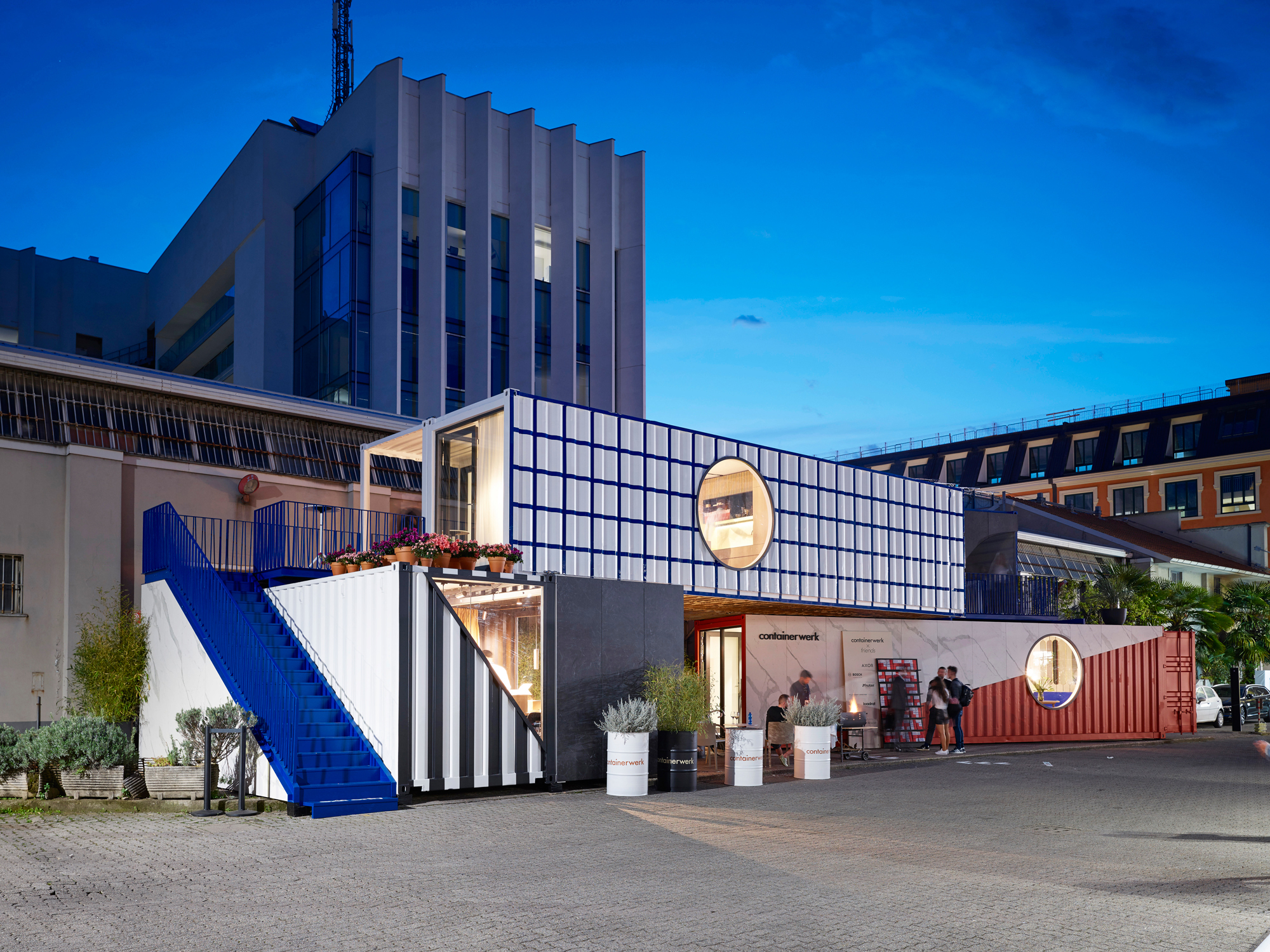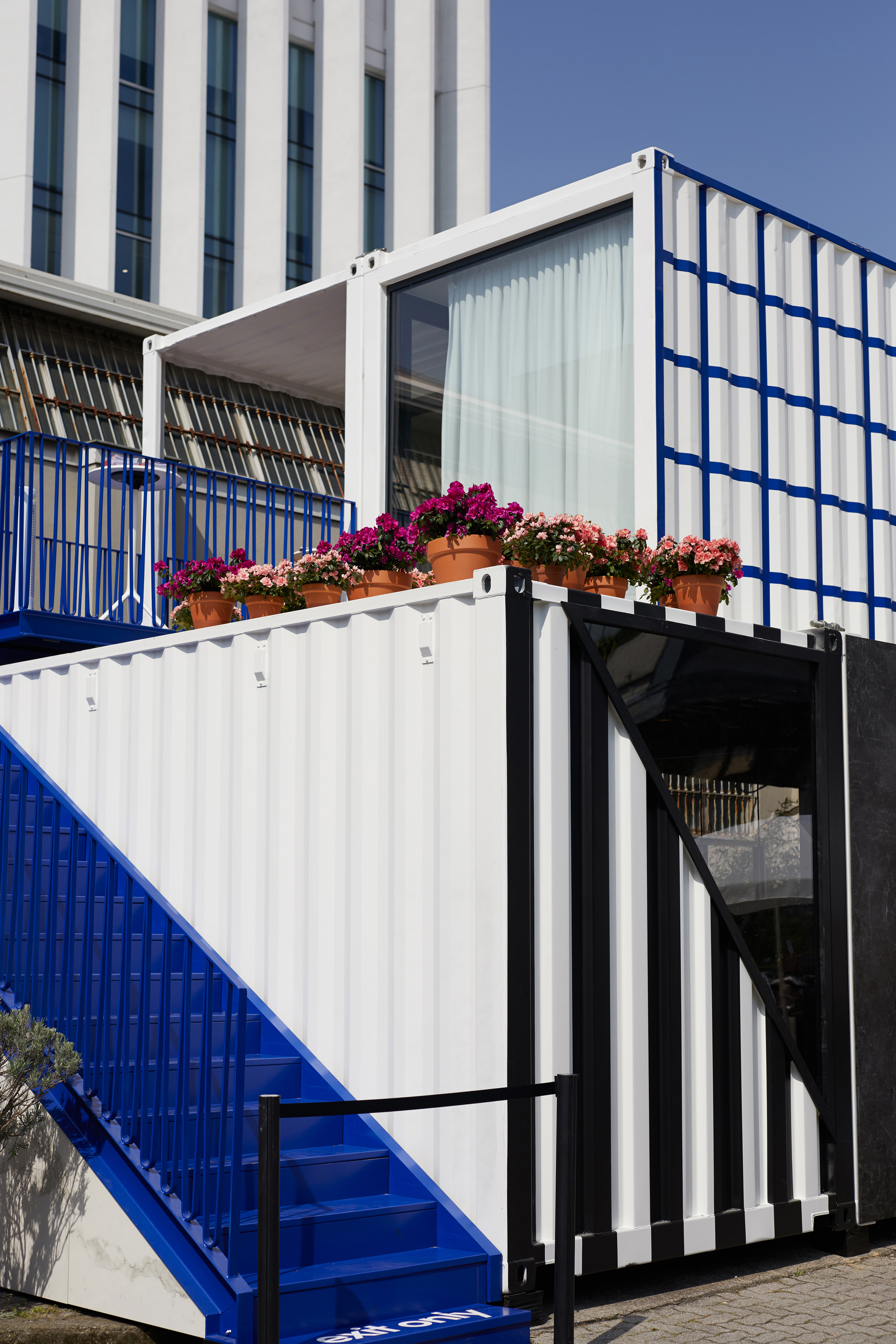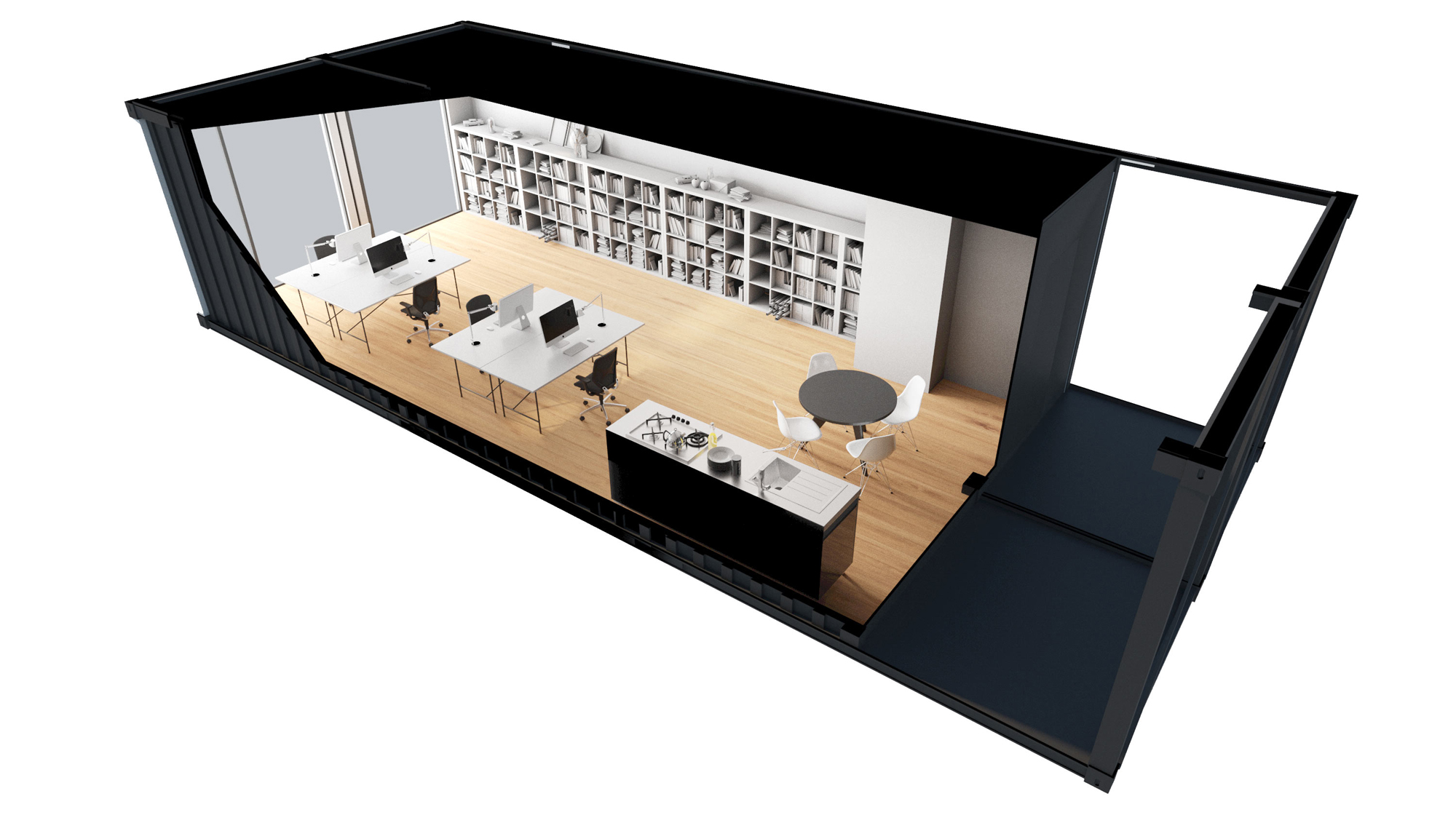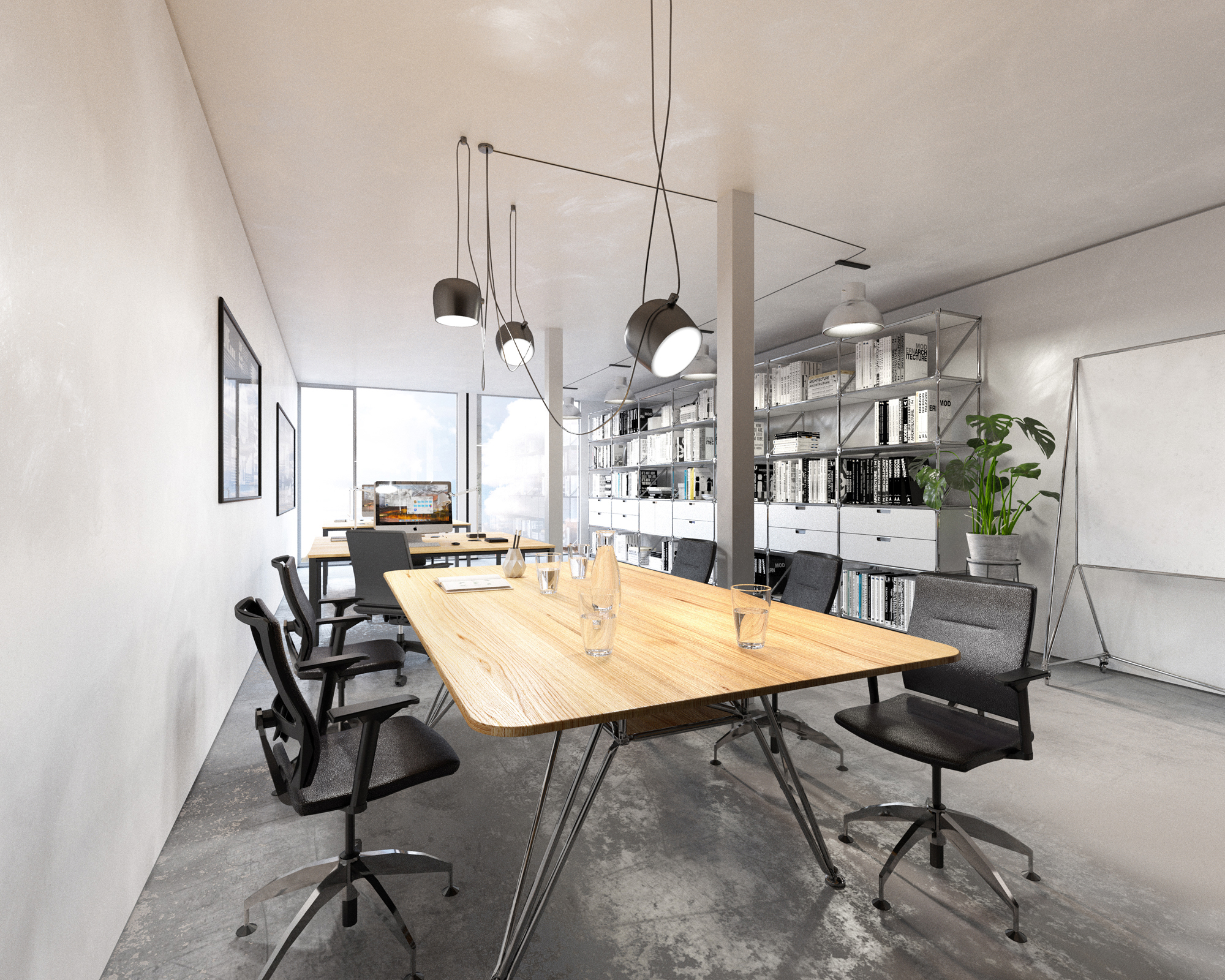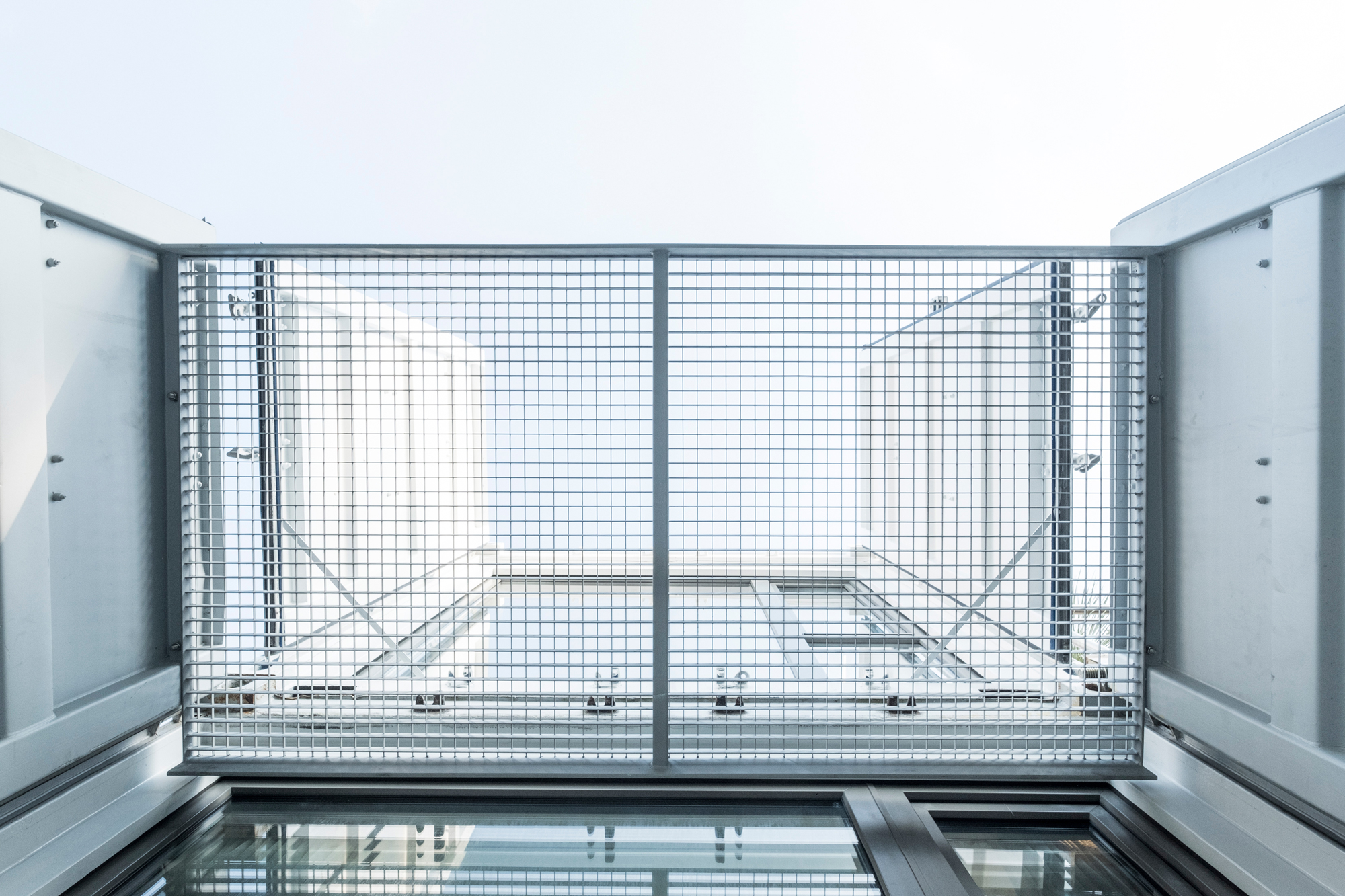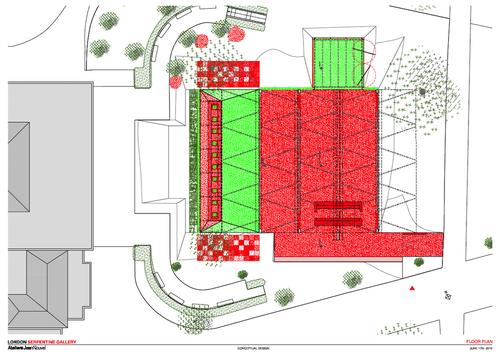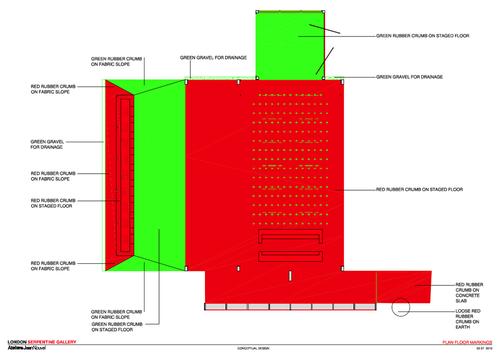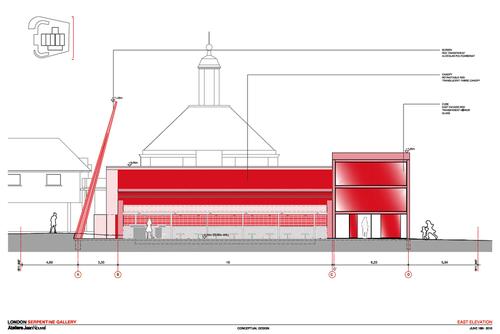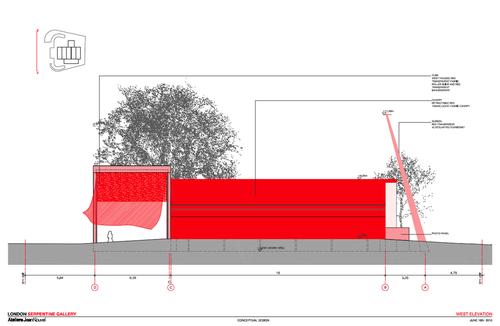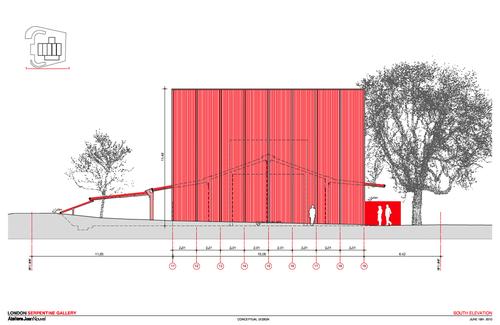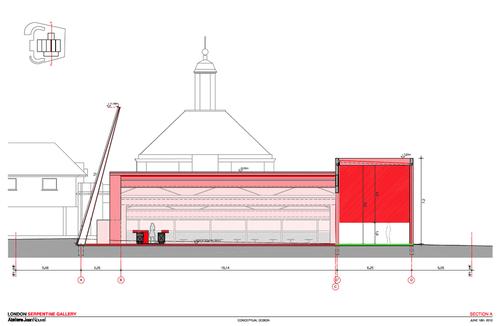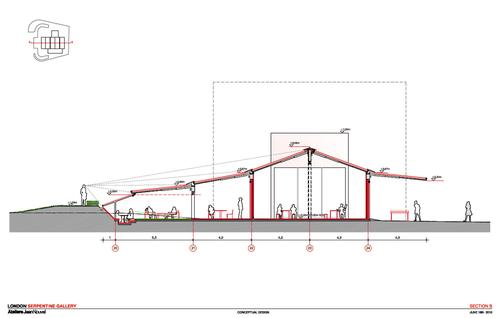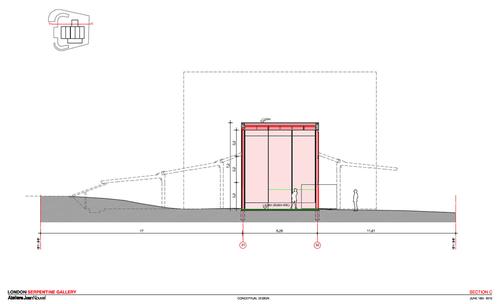Large-format upcycling: Sea freight containers become living modules

Section C / Ateliers Jean Nouvel
The average lifetime of a standard freight container is 13 years. Afterwards, their only use is generally as scrap metal. Founded in 2017, start-up Containerwerk Eins aims to meet a whole series of current-day challenges by converting disused large-capacity containers and transforming them into inexpensive, ready-to-use residential modules. These include housing shortages, lack of space, resource waste and environmental pollution. The foundation of the company was preceded by long development processes, drawn up in cooperation with, among others, the German Sustainable Building Council (DGNB) and the Fraunhofer Institute. The result of these was a fully automatic, multiple-patented process that enables monolithic, thermal bridge-free and slim high-performance insulation of the container shell.
Innovative insulation process for new room modules
Even though the idea of converting freight containers to other uses is not entirely new, decisive development steps were needed to ensure functionality and readiness for series production. Insulation methods had to be tested over the course of many years, which ultimately resulted in an innovation and the founding of the company based in Stuttgart. Polyurethane foam is used for the insulation but is extremely difficult to process, as one of the founders, Iwan Mallinowski, explains: "The temperature of the wall must be exactly right. If it is too cold, the foam retracts and does not foam enough. And if it's too warm, it foams way too strongly and sticks. We did a lot of testing, including with BASF, and found that it had to be applied at precisely 19.3° for everything to work. In addition, it has an extremely short reaction time – in the seconds range – in which it has to be exactly where it is supposed to be." This resulted in the task of processing a polyurethane foam fully automatically in three dimensions and installing it as monolithic insulation in a container. With the help of the Institute for Fuel Processing at RWTH Aachen University and a plant manufacturer, a corresponding polyurethane line was set up. Together with the second company founder, Michael Haiser, the starting shot was then fired for the container plant and the serial production of large-scale living-space containers, which today takes place at the Wassenberg production site near Düsseldorf.
Microarchitecture in a variety of designs and shapes
Within certain limits of their original morphology, there are no stylistic limits to the modules. At the 2018 Milan Furniture Fair, the company and its partners presented possible forms of their microarchitecture in several installations. This illustrated not only the diversity of the facade design and the degree of high-quality interior finishing, but also the possibilities for configuring modular ensembles into entire buildings. As the individual cuboids can be variably connected to each other both horizontally and vertically, individual multi-room solutions can be created. Due to their low weight, the cuboids can be stacked or integrated into existing building structures. The short construction time, transportability and cost-effective construction seem to offer a conceivable solution for temporary or permanent living-space concepts. In addition, the manufacturer also envisages other types of use: The containers can be converted from office space into hotel, boarding-house or dormitory accommodation, senior-citizens' facilities or even rehabilitation clinics.
From an upcycling to a recycling product
The new spatial concept also promotes long-term energy and raw-material efficiency, with the innovative insulation process meaning that the microarchitecture exceeds the EnEV standard. At the end of the container’s life cycle, all the materials used can be sorted by type and recycled in full. And since mobile point foundations are usually sufficient, the site is protected and left clear of residues. This is a promising concept that has already won Containerwerk several awards despite the company still being relatively new. Containerwerk emerged as the winner of the Green Product Award 2018 in the Architecture category, was named one of the 100 most innovative companies in Germany in the Federal Government’s "Germany – Land of Ideas" initiative, and was honoured with two finalist titles in the GreenTec Awards, which recognise the best projects worldwide in the field of environmental protection and resource conservation – in the "Building & Living" category and with the Start-up Special Prize 2018. www.containerwerk.com
Innovative insulation process for new room modules
Even though the idea of converting freight containers to other uses is not entirely new, decisive development steps were needed to ensure functionality and readiness for series production. Insulation methods had to be tested over the course of many years, which ultimately resulted in an innovation and the founding of the company based in Stuttgart. Polyurethane foam is used for the insulation but is extremely difficult to process, as one of the founders, Iwan Mallinowski, explains: "The temperature of the wall must be exactly right. If it is too cold, the foam retracts and does not foam enough. And if it's too warm, it foams way too strongly and sticks. We did a lot of testing, including with BASF, and found that it had to be applied at precisely 19.3° for everything to work. In addition, it has an extremely short reaction time – in the seconds range – in which it has to be exactly where it is supposed to be." This resulted in the task of processing a polyurethane foam fully automatically in three dimensions and installing it as monolithic insulation in a container. With the help of the Institute for Fuel Processing at RWTH Aachen University and a plant manufacturer, a corresponding polyurethane line was set up. Together with the second company founder, Michael Haiser, the starting shot was then fired for the container plant and the serial production of large-scale living-space containers, which today takes place at the Wassenberg production site near Düsseldorf.
Microarchitecture in a variety of designs and shapes
Within certain limits of their original morphology, there are no stylistic limits to the modules. At the 2018 Milan Furniture Fair, the company and its partners presented possible forms of their microarchitecture in several installations. This illustrated not only the diversity of the facade design and the degree of high-quality interior finishing, but also the possibilities for configuring modular ensembles into entire buildings. As the individual cuboids can be variably connected to each other both horizontally and vertically, individual multi-room solutions can be created. Due to their low weight, the cuboids can be stacked or integrated into existing building structures. The short construction time, transportability and cost-effective construction seem to offer a conceivable solution for temporary or permanent living-space concepts. In addition, the manufacturer also envisages other types of use: The containers can be converted from office space into hotel, boarding-house or dormitory accommodation, senior-citizens' facilities or even rehabilitation clinics.
From an upcycling to a recycling product
The new spatial concept also promotes long-term energy and raw-material efficiency, with the innovative insulation process meaning that the microarchitecture exceeds the EnEV standard. At the end of the container’s life cycle, all the materials used can be sorted by type and recycled in full. And since mobile point foundations are usually sufficient, the site is protected and left clear of residues. This is a promising concept that has already won Containerwerk several awards despite the company still being relatively new. Containerwerk emerged as the winner of the Green Product Award 2018 in the Architecture category, was named one of the 100 most innovative companies in Germany in the Federal Government’s "Germany – Land of Ideas" initiative, and was honoured with two finalist titles in the GreenTec Awards, which recognise the best projects worldwide in the field of environmental protection and resource conservation – in the "Building & Living" category and with the Start-up Special Prize 2018. www.containerwerk.com
